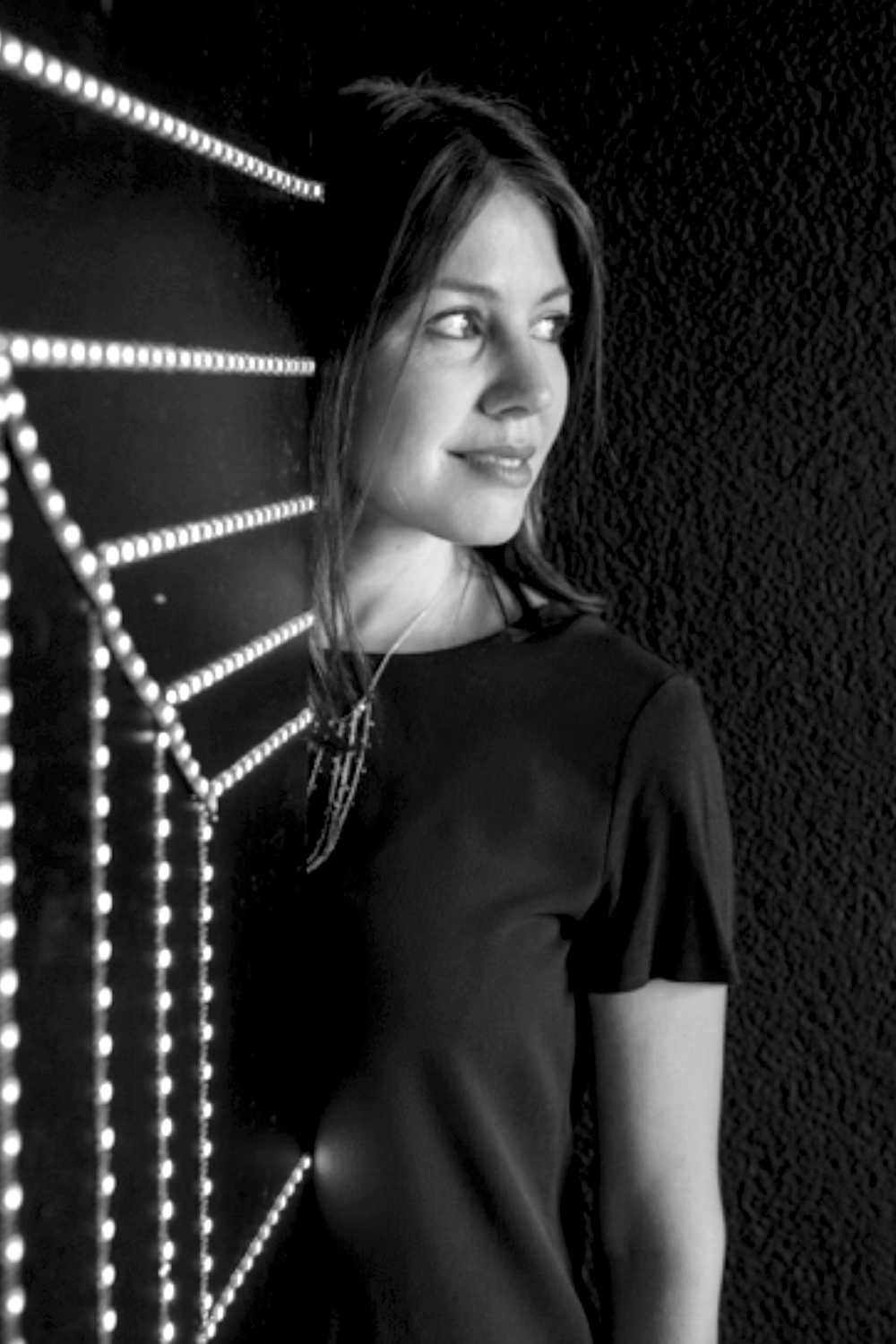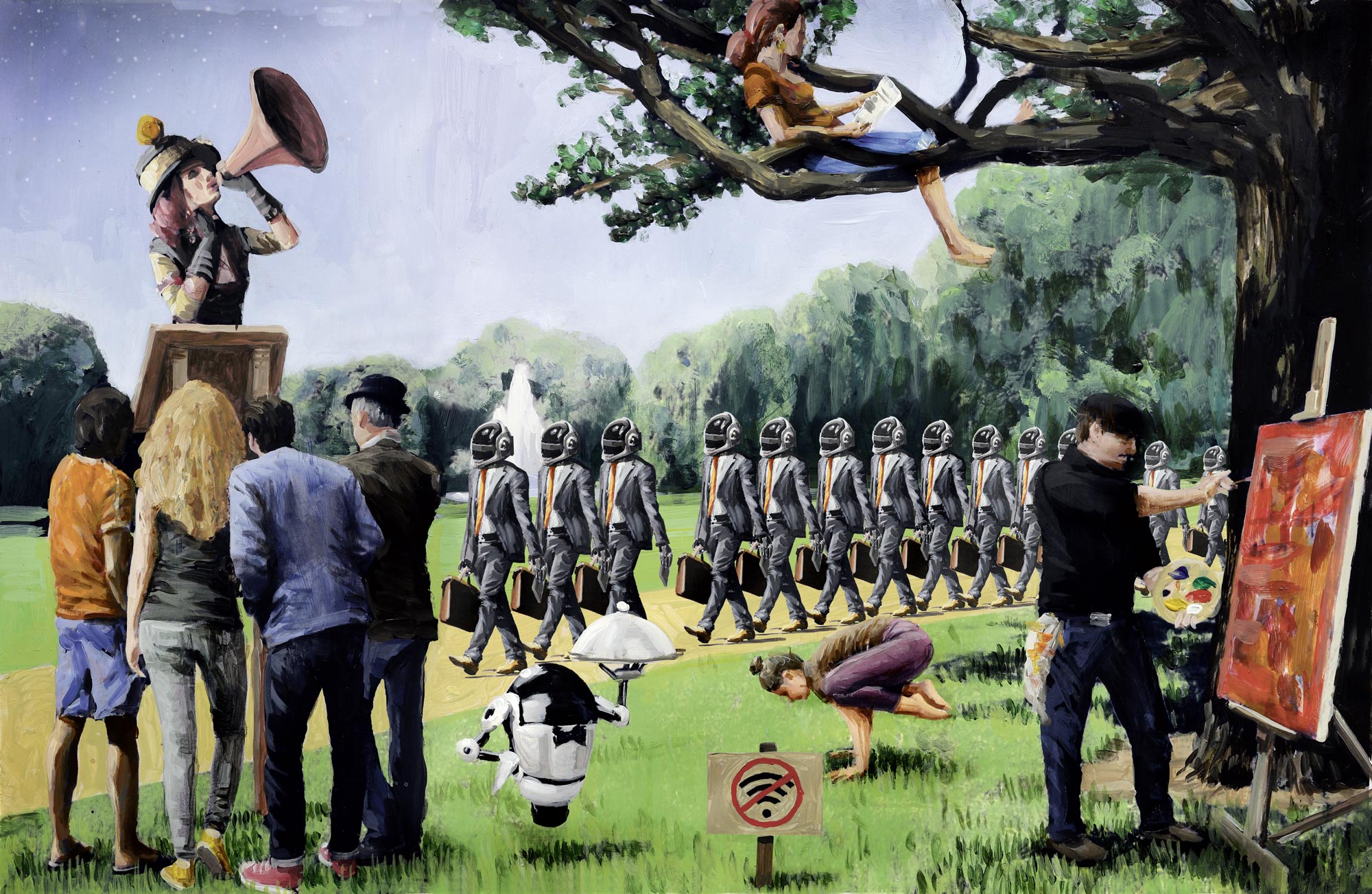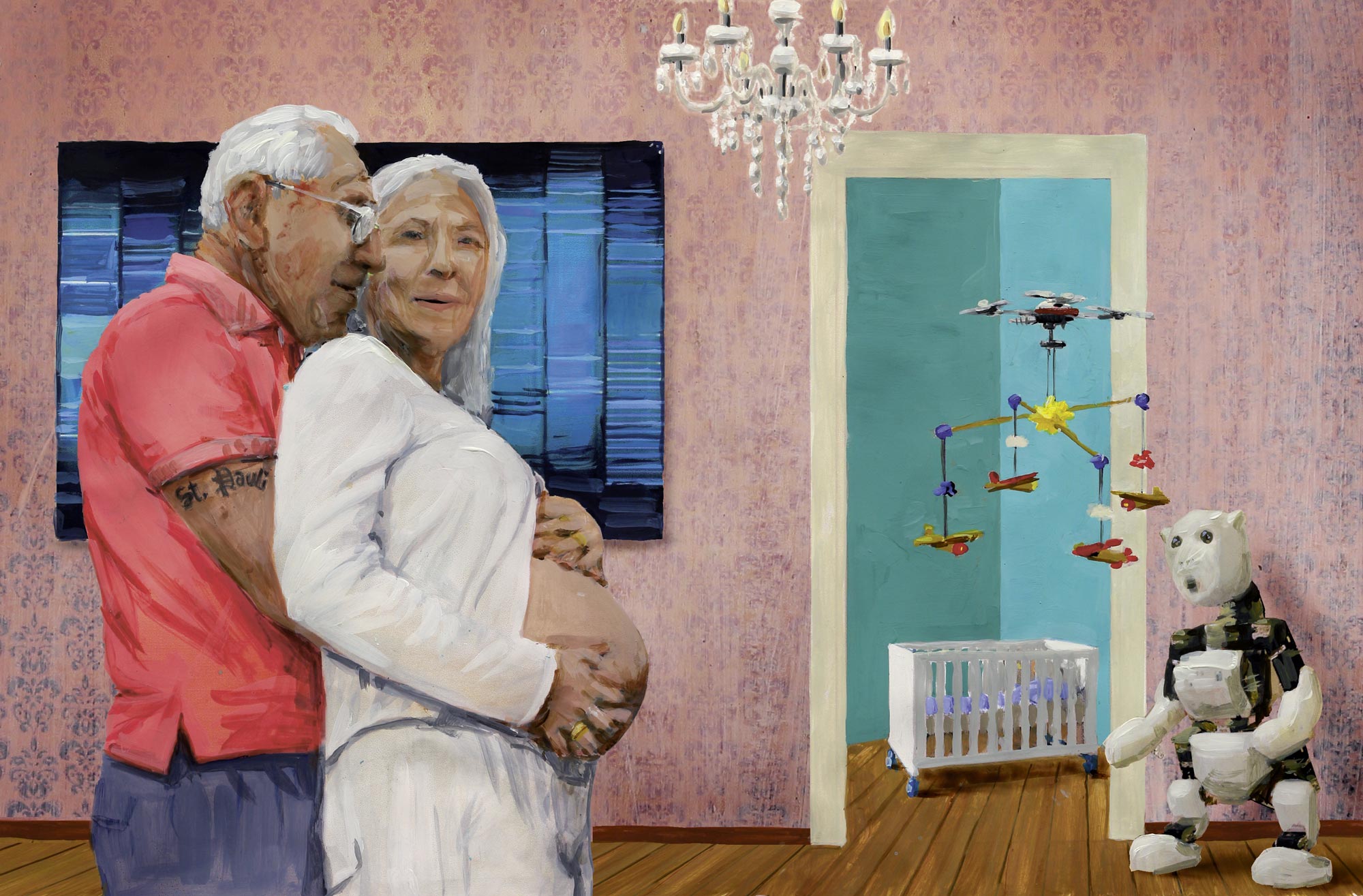«What we definitely know: Our numbers are continually rising and we have less and less space.»
SUSANNA KOEBERLE • 19.04.2018
The interdisciplinary W.I.R.E. think tank has been looking at global developments in business, science and society for about ten years. We had a discussion with Simone Achermann, one of the co-founders of the Swiss think tank, about one of the main topics: Our prospects for the future.
SUSANNA KOEBERLE: How can one investigate the future?
SIMONE ACHERMANN: Investigating the future is not a scientific discipline. Science tends to be retrospective. It measures what is there. And the future is not there. Nobody knows what the situation will be the day after tomorrow. But we can be involved in determining it! It is therefore also not our task to make precise forecasts, but rather depict social developments systematically in their entirety – with all the possible consequences and challenges. Building on this, we indicate scenarios of the future, which can be used as a basis for decision-making and are intended to promote discourse.
SK: Many people are afraid of the future.
SM: What lies ahead is always an opportunity and a risk at the same time. However, change is the basis of life and stagnation the decline of every society. The important thing is to ask how we deal with change. For example, how much we want to adjust to technological progress. We are currently experiencing a perceived acceleration of change and don’t know how to react to it. There is no uniform solution. Something different applies to start-ups than to large companies or state institutions.
SK: Can we learn how to deal with change?
SM: Actually we all already do this throughout our lives. Nevertheless it is particularly important today to tackle the challenges of things like digitalisation at an early stage. Our children are already being confronted with such issues like how they can handle the media sensibly.
SK: In your book «Wie wir morgen leben» (How we will live tomorrow) you write that the future will bring lots of freedoms but also more individual responsibility. Will we soon become designers of our lifestyles?
SM: Yes to a certain extent. Until now most of us have followed the preordained path of our grandparents: Education, career, family, pension. Because we will live longer in the future, and will have more technological opportunities and fewer traditional values, we can design our lives on a more individual basis. For example by freezing egg cells, we could have children after our careers to avoid the dual burden of family and a career.
SK: These changes also affect the subject of work. What will change?
SM: Retiring at the age of 65 will probably soon be a thing of the past. Not only are we living longer, we are also staying healthier for longer. At the same time some jobs will vanish through automation. We will have to fundamentally redefine work. Human skills such as empathy could become more important as a distinction from a machine. And we will have to give ourselves more tasks.
SK: What does the future of living look like?
SM: Here we will also have to go down various paths. But what we definitely know: Our numbers are continually rising and we have less and less space. One solution to emerge is flexible forms of living, which permit the maximum to be obtained from a small space: for example furniture, which shifts at the press of a button and in this way can fulfil various functions. Technology will increasingly move into our homes: From semi-intelligent machines such as robot vacuum cleaners to sensors and cameras, to check on the health of older people and in this way be able to delay their move into a home for the elderly.
SK: What are you looking forward to personally?
SM: I am looking optimistically into the future because we have never had so many opportunities to make it good. As a working mother, I would never say no to a robot cleaner.
SK: What are you afraid of?
SM: Excessive demands being placed on an individual will continue to increase.
It is our task to overcome the gulf between people, who get the most out of themselves and those who find this more difficult.
SK: How can one make oneself optimally fit for the future?
SM: By dealing with the social consequences of change at an early stage and looking for solutions. We are just launching a project on this subject, which precisely pursues this aim: Including everyone on board. This means imagining possible forms of the future so that we are able to decide which of them are desirable. This also means: We must once again make the future our own! The best weapon is openness.
SK: Can we learn from the past?
SM: Yes, because without the past there is no future. The separation between the past, present and future is artificial. The past determines the future to a large extent. This also means: People will also never change that radically.
Simone Achermann

Simone Achermann is a co-founder of the W.I.R.E. think tank. The cultural scientist deals with developments and trends in society, business and culture. Simone Achermann is responsible for the “Abstrakt” book series and the author of various publications including «Wie wir morgen leben. Denkanstösse für das Zeitalter der Langlebigkeit» (How we will live tomorrow. Thought-provoking ideas for the age of longevity». She has two children and lives in Zurich.
Book reference:
Wie wir morgen leben. Denkanstösse für das Zeitalter der Langlebigkeit. Simone Achermann, Stephan Sigrist, NZZ Libro, 220 pages, CHF 34
PAINTING: WOJTEK KLIMEK
PORTRAIT: THE WIRE

